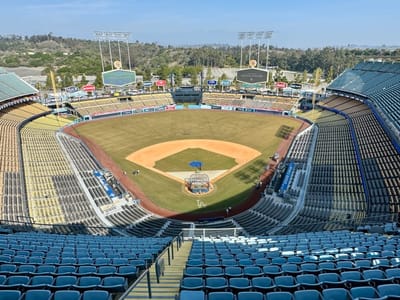After reading Jason's comments on
After reading Jason's comments on an upcoming "warblog" book, and seeing their response, this passage explaining the warblog book editor's resistance to presenting a balanced view stood out:
"At the same time, and perhaps I'm wrong, there's very little interest in printing Chomsky-style prattle. A "balanced, accurate snapshot" of the Web would include the white supremacists who cheered the collapse of the towers on September 11, Jorn Barger's conspiracy theories implying Israel was behind the attacks, Saudi newspapers telling tales of Jews baking Gentile blood into pastries, Counterpunch's and Robert Fisk's excuses for the terrorists, and Arab newspapers on alternate days applauding Osama Bin Laden for his bold strike and denying that he had anything to do with it. It would include masses of frankly unreadable attempts at writing from people of all viewpoints."
Out of all their examples, only Jorn Barger would even be considered in a book of "bloggers' views of September 11," the rest are a nice example of argumentum ad consequentiam. None of those points matter, because they don't even represent the contents of the book. Impressive attempt to derail the criticism with hyperbole though.
If one were going to compile a review of weblog reactions to September 11, I would think Dave's site and Jason's site during that day, and in the days that followed, in addition to the giant MetaFilter thread and every Blogger weblog post that mentions relavent terms perfectly capture many people's shock and horror as the day's events unfolded. The broad range of reactions are shown in all those posts. Calls for peace intertwine with calls for arms. Descriptions of real time events as they happened, filled with pain, horror, anger, and sorrow. It doesn't require digging into the edges of the political spectrum to get an accurate picture of blogger's view of the day, it's all out there in the open, and quite easy to find. The original post that brought it up, though heavily exaggerated, doesn't sound like the book will really cover blogger's views of September 11, nor communicate the great power of weblogs and the good things they did for a lot of people that day.
The real story is much more than presenting a bunch of hawkish warblog posts in book form. The real meat of the story is manyfold, it starts with the fact that major news sites were unreachable, and weblogs filled the gap, that people could share their first-person accounts in text, video, or photographic forms just hours after it happened, others could locate missing folks via the web, and everyone could write about how they felt, getting their anger, confusion, and frustration out.
Forty years from now, we're going to ask each other "Do you remember what you were doing in America on September 11, 2001?" and like our parents telling us where they were and what they were doing when they heard Kennedy was shot, we might be able to point to actual weblog posts as a historical record. A range of reactions would be interesting, to get an accurate picture of what the weblog world looked like in the aftermath of 9/11.
I don't think a collection of post-9/11 essays from a group of armchair generals would be interesting nor provide any lasting value, it'd simply restate prevailing opinions of the time and instantly date the work. I would hope the editors are shooting for something lasting and substantial, though I'm not holding my breath.
Subscribe to our newsletter.
Be the first to know - subscribe today





